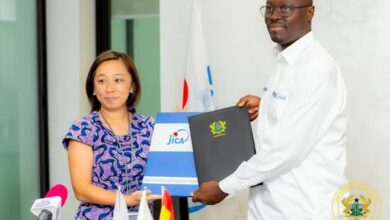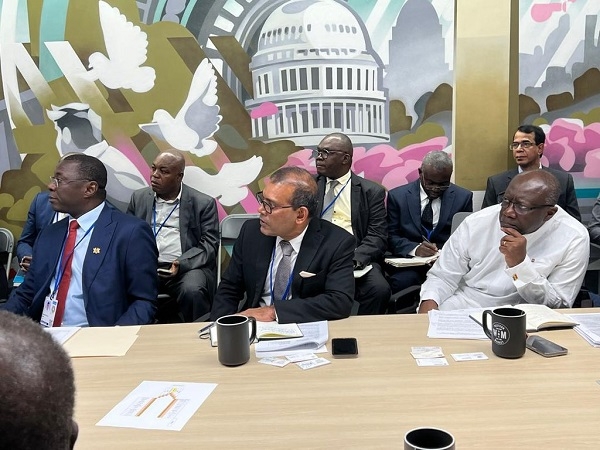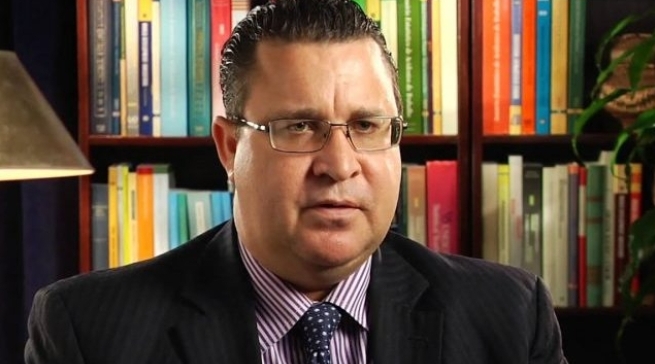Pension AUM to hit GH¢100 billion in 2025, but concerns persist over investment options

The local pension fund assets under management (AUM) are expected to reach GH¢100billion by the end of 2025, significantly ahead of earlier projections according to David Tetteh-Amey Abbey, Deputy Chief Executive Officer-National Pensions Regulatory Authority (NPRA).
Speaking at the 3rd Annual Forecast Dinner organised by CFA Society Ghana, Abbey noted that the industry had initially targetted GH¢100billion by 2026 but is now set to reach that milestone a year earlier.
“We were estimating it to hit about GH¢100billion by end of this year. In our strategy document, we thought we could do that by 2026; but with the heat we are seeing in the market, we may hit GH¢100billion by the end of 2025,” he said.
The pension industry had GH¢78.2billion in AUM as of June 2024, with the majority of funds allocated to domestic assets including government securities and Eurobonds.
However, the concentration of pension funds in sovereign debt remains a key risk for the sector – particularly in the wake of the Domestic Debt Exchange Programme (DDEP), which restructured GH¢31billion of pension holdings.
Mr. Abbey acknowledged the impact of this exposure, stating: “We all know that during the DDEP we saw that 85 percent of pension funds were in government securities and a similar number of collective investment schemes are in government securities – so when government coughed, we all caught a cold”.
NPRA’s guidelines allocate the highest portion (75 percent) to Government of Ghana Securities – including Treasury bills, notes and bonds – while Corporate Debt Securities and Bank Securities each receive 35 percent allocations.
Local Government Securities and Alternative Investments are capped at 25 percent, Listed Shares at 20 percent and Collective Investment Schemes at 15 percent.
The framework includes specific restrictions such as a 5 percent cap per issue for corporate, bank and collective investments; and a 10 percent maximum holding of any single issue.
To mitigate concentration risk, NPRA revised its investment guidelines; increasing the allocation for alternative investments to 25 percent.
This move was expected to diversify portfolios and create opportunities for pension funds beyond government securities.
Consequently, by the end of 2025, there will be as much as GH¢25billion available for alternative assets classes.
“At the last review of our investment guidelines, we moved the alternative to about 25 percent; so if we are looking at GH¢100billion, then it means as much as GH¢25billion could be there for the alternative investments,” the NPRA Deputy CEO noted.
Despite this shift, pension fund managers remain cautious about venturing into unfamiliar asset classes, particularly given the strict fiduciary responsibilities attached to managing retirement savings.
The lack of investment vehicles that meet the strict regulatory and risk thresholds as well as the slow bond market has resulted in higher subscription rates for Treasury bills, as pension funds seek safety in short-term government instruments.
As such, private pension fund managers in 2024 pushed for increasing the threshold for offshore investments beyond the current five percent ceiling, as they sought safety in higher-yielding foreign assets and currency diversification opportunities.
There was, however, a pushback by the regulator – ostensibly to protect the cedi. The local unit would eventually depreciate 19 percent against the US dollar in 2024.
At the same event, Chief Executive Officer (CEO) of Sarpong Capital, Kofi Kodua Sarpong, called for a regulatory reassessment to allow pension funds access more transparent international markets, hedge against local economic risks and enhance returns.
“The regulators might be concerned but these offshore investments are very transparent and the returns would be in foreign currency; and when this is repatriated, it would be a boost for us,” he argued.
Despite regulatory constraints, the pension fund industry is seeing a modest shift, with new investment instruments such as green bonds, asset-backed securities and real estate investment trusts (REITs) gaining traction. NPRA’s revised guidelines have also introduced incentives for green financing, allowing up to 5 percent of pension fund investments in green bonds without counting toward main category caps.
There is also a growing push for corporate bond markets, municipal bonds and commodity-linked securities such as Cocoa Bonds, which could provide viable domestic investment options for pension funds.
Mr. Abbey charged financial professionals to develop innovative investment products that offer both security and returns.
“We do not want our people to invest in places like crypto. We need financial professionals to help with solid, yet safe, products,” he said.
The NPRA maintains that prudence and risk management will remain central to pension fund investment decisions even as the sector explores new opportunities, Mr. Abbey added.
Source: thebftonline.com





